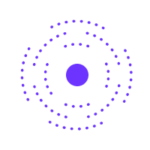Research suggests that some psychedelic compounds may be useful in treating depression in conjunction with therapy. Synthetic psilocybin has been fast-tracked by the FDA as a treatment for treatment-resistant depression in conjunction with psychotherapy after having shown efficacy in clinical trials. Psilocybin, along with LSD (in standard dosages and microdoses), MDMA, and ketamine have all shown promise in research and anecdotal usage as a treatment.
Depression
Things to Know
- Ketamine is being used in clinics worldwide as a depression treatment
- Clinical and anecdotal evidence point to efficacy of microdosing, psilocybin, and LSD as treatments for depression when used in a therapeutic process
- While known as a treatment for post-traumatic stress disorder, MDMA-assisted therapy is also used to treat depression
- Psychedelic-assisted therapy’s success often occurs in conjunction with integration therapy, and a curated set and setting
LSD for Depression
Both personal use and scientific reports speak to the efficacy of LSD-assisted therapy to treat depression, in the form of either a full dose, or a microdose.
Read about LSD for depression.Psilocybin Mushrooms for Depression
Psilocybin mushrooms were granted “breakthrough therapy” status by the FDA for its ability to treat Major Depressive Disorder (MDD) and Treatment Resistant Depression (TRD).
Read about psilocybin mushrooms for depression.MDMA for Depression
Research participants with a predisposition to depression who received MDMA-assisted therapy showed a statistically significant decrease in depressive symptoms.
Read about MDMA for depression.Ketamine for Depression
One of the most promising uses of ketamine-assisted therapy in the mental health field is to treat Major Depression.
Read about ketamine for depression.






